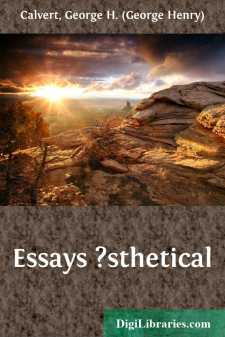Categories
- Antiques & Collectibles 13
- Architecture 36
- Art 48
- Bibles 22
- Biography & Autobiography 813
- Body, Mind & Spirit 142
- Business & Economics 28
- Children's Books 15
- Children's Fiction 12
- Computers 4
- Cooking 94
- Crafts & Hobbies 4
- Drama 346
- Education 46
- Family & Relationships 57
- Fiction 11828
- Games 19
- Gardening 17
- Health & Fitness 34
- History 1377
- House & Home 1
- Humor 147
- Juvenile Fiction 1873
- Juvenile Nonfiction 202
- Language Arts & Disciplines 88
- Law 16
- Literary Collections 686
- Literary Criticism 179
- Mathematics 13
- Medical 41
- Music 40
- Nature 179
- Non-Classifiable 1768
- Performing Arts 7
- Periodicals 1453
- Philosophy 64
- Photography 2
- Poetry 896
- Political Science 203
- Psychology 42
- Reference 154
- Religion 513
- Science 126
- Self-Help 84
- Social Science 81
- Sports & Recreation 34
- Study Aids 3
- Technology & Engineering 59
- Transportation 23
- Travel 463
- True Crime 29
Essays ?sthetical
Description:
Excerpt
I.
The Beautiful is one of the immortal themes. It cannot die; it grows not old. On the same day with the sun was beauty born, and its life runs parallel with the path of that great beautifier. As a subject for exposition, it is at once easy and difficult: easy, from the affluence of its resources; difficult, from the exactions which its own spirit makes in the use of them.
Beauty—what is it? To answer this question were to solve more than one problem. Shall we attempt what has been so often attempted and never fully achieved? Such attempts are profitable. What though we reach not the very heart of the mystery, we may get near enough to hearken to the throb of its power, and our minds will be nerved by the approximation.
To him who has the gift to feel its presence, nature teems with beauty. Whithersoever the senses reach, whenever emotion kindles, wherever the mind seeks food for its finer appetites, there is beauty. It expects us at the dawn; it is about us, “an hourly neighbor,” through the day; at night it looks down on us from star-peopled immensities. Glittering on green lawns, glowing in sunsets, flashing through storm-clouds, gilding our wakeful hours, irradiating sleep, it is ever around, within us, eager to sweeten our labors, to purify our thoughts. Nature is a vast treasure-house of beauty, whereof the key is in the human heart.
But many are the hearts that have never opened far enough to disclose the precious key enfolded in their depths. Whole peoples are at this moment ignorant that they live amid such wealth. As with them now, so in the remote primitive times of our own race, before history was, nature was almost speechless to man. The earth was a waste, or but a wide hunting ground or pasturage; and human life a round of petty animal circles, scarcely sweeping beyond the field of the senses; until there gradually grew up the big-eyed Greek and the deep-souled Hebrew. Then, through creative thought,—that is, thought quickened and exalted by an inward thirst for the beautiful,—one little corner of Europe became radiant, and the valley of Tempe and the wooded glens of Parnassus shone for the first time on the vision of men; for their eyes—opened from long sleep by inward stirring—were become as mirrors, and gave back the light of nature:
“Auxiliar light
Came from their minds, which on the setting sun
Bestowed new splendor.”
And man, heated by the throbs of his swelling heart, made gods after his own image,—forms of such life and power and harmony that the fragments of them, spared by time, are still guarded as faultless models of manhood. And the vales and groves and streams were peopled with beauteous shapes. And the high places were crowned with temples which, in their majestic purity, look as though they had been posited there from above by heavenly hands. And by the teemful might of sculptors and painters and poets the dim past was made resurgent and present in glorious transfiguration....


